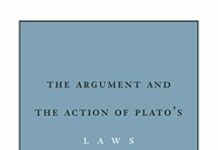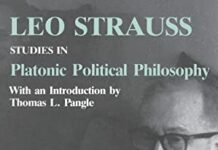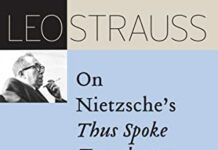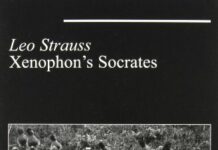
Ebook Info
- Published: 2014
- Number of pages: 350 pages
- Format: PDF
- File Size: 17.52 MB
- Authors: Leo Strauss
Description
The esteemed philosopher’s assessment of good, evil, and the value of Machiavelli. Leo Strauss argued that the most visible fact about Machiavelli’s doctrine is also the most useful one: Machiavelli seems to be a teacher of wickedness. Strauss sought to incorporate this idea in his interpretation without permitting it to overwhelm or exhaust his exegesis of The Prince and Discourses on the First Ten Books of Livy. “We are in sympathy,” he writes, “with the simple opinion about Machiavelli [namely, the wickedness of his teaching], not only because it is wholesome, but above all because a failure to take that opinion seriously prevents one from doing justice to what is truly admirable in Machiavelli: the intrepidity of his thought, the grandeur of his vision, and the graceful subtlety of his speech.” This critique of the founder of modern political philosophy by this prominent twentieth-century scholar is an essential text for students of both authors.
User’s Reviews
Reviews from Amazon users which were colected at the time this book was published on the website:
⭐The centrality of Thoughts on Machiavelli within Strauss’ work cannot be overemphasized. During his lifetime (by my count), Leo Strauss published some 14 or 15 books (depending on whether you count The History of Political Philosophy). Thoughts on Machiavelli was published in 1958. It had been preceeded by Persecution and the Art of Writing (1952) and Natural Right and History (1953) and was followed by What is Political Philosophy (1959) and The City and Man (1964). This five books form the central period of Strauss’ work wherein he came to his mature philosophical outlook. The four books prior to PAW can be seen as the ground work for his mature work. The books that follow the central five can be seen as Strauss’ return to classical political philosophy to try to reveal the grounding experiences that led to the development of classical political philosophy and what he saw as its version of natural right.Thoughts on Machiavelli (hereafter ToM) is central in another sense. Strauss saw the history of philosophy as the struggle between the Ancients and the Moderns. This was the historical theme that he used to frame his main theme which was the fundamental alternative of Reason versus Revelation. Strauss saw the conflict between reason and revelation as playing out differently in classical political philosophy and in modern political philosophy. Machiavelli (hereafter, M.) is THE turning point.ToM is divided into four chapters. The first delves into the relationship between Machiavelli’s Prince and his Discourses. The second chapter explores what M.is trying to do in the Prince and the third chapter explores M.’s intention in The Discourses on Livy. The fourth (which is wonderful example of Strauss’ frustrating, demanding and consice writing) is Struass’ critique and explication of what M contributed to modern political thought.A good deal of what Strauss is trying to do in the book is to get us to experience anew the traditional insight that M. is a teacher of evil. Strauss feels that M. rejects both Christian and classical political philosophy because M. felt they were both based on unrealistic, indeed, unattainable ideals of morality. These overreaching ideals had had a terrible impact on the Italy of M.’s time turning it into a weak and corrupt group of city states that were incapable of defending themselves let alone of achieving greatness.M. wanted to replace these moral theories (and their subsequent political philosophies) with one that was based on man as he was, i.e., driven first by survival and then by the need to excel over other men. This was matched by M.s way of seeing the world- a universe ruled by nature and chance (no God, no teleology) that could be mastered by men who exercised prudence and strength of will. Preferably that would be in the form of an elite leading a republic but there were times (such as the founding of a city or after a republic had devolved into corrupt licentiousness) when the leadership demanded the ruthless efficiency of a prince willing to do what had to be done. Thus Strauss sees M. as neither an advocate of a republic or of a prince but of whatever was called for by the circumstances of the time.One last thing-Strauss is hard to read largely for two reasons. The first is that he almost always chose to make his argument by commenting on the work of a great thinker such as M. This presents several difficulties. The reader has to keep in mind whose thought is being expressed at any one point in time. I have sometimes found myself thinking, “wha’ the …Oh, that isn’t Strauss talking, that is Strauss talking in the voice of M. so as to present M.’s ideas.”. The other difficulty inherent in commentaries is that it helps to know the writings of the thinker being commented on. And you will never know those writings as well as Strauss (I cannot exaggerate Strauss’ learning). He not only makes use of M.’s Prince and Discourses but The Life of Castruccio Castracani, Mandragola, The History of Florence, An Exhortation to Penitence and the occassional letter.The latter complication is what makes for the second great problem when reading Strauss. Enter The Notorious Theory of Esoteric Writing!!! ToM is lastly central because it allows the reader to really see Strauss working with his theory of esoteric writing/reading in the second and third chapters as well as the assumptions on which that theory is based (for example, the idea of “perfect speech” on p.121). Strauss makes the assumption that very little, perhaps nothing, in M.’s writing is a mistake. One commentator said that “in Strauss, a blink is always a wink” (sorry, I don’t remember where I read that). If there is a contradiction between what M. said in two places, than there is a reason that has to be teased out.I am going to make one comment on the whole esoteric business. I challenge any of you who think that it is an absurdity that some people wrote esoterically to do what Strauss and the better of his followers have done over and over again. Come up with a coherent interpretation of a thinker that is based on the whole of their work that has nothing to do with what that thinker thought. I don’t think it can be done. I am not saying that Strauss is right. I am saying that he never spouts nonsense and that any commentator on M. has to deal with Strauss’ presentation.In the meantime, you will find much more to profit from by wrestling with Strauss in ToM. As I say over and over in my reviews of his writings, I agree with little of his philosophy but I have learned much from him. Read him for yourself and see what YOU think.By the way, as a follow up reading, you might try Kim Sorensen’s Discourses on Strauss. It is a close reading of ToM that focuses on how that particular book discloses Strauss’ thought on his reason versus revelation theme.
⭐A great book from a great mind. Read most of his books, this is by far the best.
⭐Strauss is such a careful reader that he can be very convincing in an almost unconscious way, but we should remember that Strauss has his own agenda and that his Machiavelli is quite unique. I almost think this book should be read more to understand Strauss than to understand Machiavelli.He carefully guides the reader toward his theses, though just as often he seems to guide the reader toward some thesis without explicitly stating it. It is surprising that the most bold elements of his interpretation seem to be wholly original. That originality should raise suspicion–did Machiavelli hide his intention so well that it took five centuries to be discovered? Strauss is careful to justify his moves, but it is possible that his interpretation reads too much into the texts or even that Strauss intentionally uses Machiavelli as he claims Machiavelli used Livy.In the humanist-republican reading, Machiavelli’s teaching that the end excuses the deed is excused through his patriotism. Strauss, on the other hand, argues that Machiavelli uses patriotism to veil his true aim which is to question the status of morality itself. For Strauss, Machiavelli marks the birth of modern philosophy because he reasons about everything rather than relying on authority. Further, in Machiavelli’s writings, the meaning of philosophy undergoes a change: the city, not the soul, becomes the ultimate end. Philosophy takes as its standard the low but solid foundation of how men live. Since it is based on how men live rather than how they should live it is more likely to be actualized, but forgoes excellence.Although “Machiavelli does not bring to light a single political phenomenon of any fundamental importance which was not fully known to the classics,” he “is more responsible than any other man for the break with the Great Tradition.” This is because he turned an esoteric teaching into a public teaching. Since he propagated in his own name a teaching that the ancients only dared put in the mouths of others, he is “an evil man.” Not only that but whereas the Republic attempts to refute the argument of Thrasymachus, Machiavelli attempts to dethrone Biblical religion and classical political philosophy. The classical teaching on realism was part of a greater whole; Machiavelli believes he has discovered a new teaching only because he has forgotten the whole of which that teaching was only a part. These are some of Strauss’ claims.His interpretation is brilliant, but he oversteps the case by focusing too much on the ideological aspects of his argument. Machiavelli goes to the heart of the political problem, but Strauss–and, even more so, some of the Straussians–transfers the problem to the ideological realm by making Machiavelli about spiritual warfare. Strauss makes Machiavelli the lynchpin of his grand narrative of western thought.I will give a few examples of how Strauss goes too far. He turns Machiavelli into “a new prince,” “a true founder,” “a prophet,” “the new Moses,” “an unarmed prophet,” “the armed prophet,” “the founder-captain,” “a captain without an army who must recruit his army by means of his books,” and so on. If Strauss only used Machiavelli’s words to amplify Machiavelli’s teaching this would not be so questionable, but according to Strauss Machiavelli sees and describes himself in those ways, though what he is founding is a new moral code.One knows what to expect from those who pursue Strauss’ Machiavelli: numerology; ascents and descents; spiritual warfare; indignation over the elevation of the people above the aristocracy; lamentation for the degradation of the human to half-man, half-beast. Yet Strauss and his followers don’t even seem to suspect that by warfare Machiavelli–the former Secretary of the Ten of War–actually means warfare. Based on their assertion, they can take anything he says about war to apply to spiritual war against Christianity and classical political philosophy. For example, Strauss writes: “Towards the end of his work, [Machiavelli] indicates his procedure by the following sentence: ‘Although to use fraud in any action is detestable, yet in the conduct of war it is praiseworthy and glorious.'” Strauss’ comment shows how he, and his followers, can find an “esoteric” meaning in any sentence. But to read that sentence as an esoteric statement by Machiavelli about his own procedure turns Machiavelli into a puppet. The sentence addresses a life-and-death question about the conduct of war. Machiavelli rejects both the Christian opinion of Thomas Aquinas and the Stoic opinion of Cicero regarding the use of fraud. Strauss’ esoteric technique can take on a parasitical life of its own, but the literal meaning is often more interesting and more important than the alleged esoteric meaning. Likewise, placing his texts in their historical context is often more illuminating than interpreting them in the light of an esoteric reading. One must wonder if his followers are in on an act of fraud or truly believe that almost every sentence can be read esoterically as a comment about Machiavelli himself or a critique of Biblical religion. In the esoteric reading what Machiavelli does not say becomes as, or more, important than what he does say. But if we are reading silences shouldn’t we be especially cautious? Strauss creates a metaphysics of presence based on absence–on what Machiavelli does not say. He writes that “Machiavelli’s Livy is a character of Machiavelli.” Could it be that Strauss’ Machiavelli is a character of Strauss? If so, what role does he make Machiavelli play?Strauss’ interpretation is haunted by the likelihood that Strauss himself writes esoterically about Machiavelli. We know that Strauss prefers classical political philosophy. The ancients knew the esoteric teaching but put it in the mouths of others. Is it possible that Strauss damns Machiavelli in order to save the esoteric teaching? At various places in the book, he briefly points out the key points on which Machiavelli and classical political philosophy agree, including the fact that Plato’s ideal regime is founded on immorality. If Strauss himself holds a secret teaching, for what reason does it need to be secret? It could only be because he thinks it is too dangerous to be a public teaching.Even if one questions his characterization of Machiavelli as a megalomaniac “teacher of evil” whose primary intention is spiritual warfare, his book lays a rich ground for thinking about Machiavelli, western philosophy and Strauss’ own philosophy. However, his resistance to reading Machiavelli in his historical context increases the risk of unintentionally importing concepts foreign to Machiavelli into one’s interpretation. Reading historical scholars like Felix Gilbert and Maurizio Viroli is a good countermeasure.
⭐Strauss is such a careful reader that he can be very convincing in an almost unconscious way, but we should remember that Strauss has his own agenda and that his Machiavelli is quite unique. I almost think this book should be read more to understand Strauss than to understand Machiavelli.He carefully guides the reader toward his theses, though just as often he seems to guide the reader toward some thesis without explicitly stating it. It is surprising that the most bold elements of his interpretation seem to be wholly original. That originality should raise suspicion–did Machiavelli hide his intention so well that it took five centuries to be discovered? Strauss is careful to justify his moves, but it is possible that his interpretation reads too much into the texts or even that Strauss intentionally uses Machiavelli as he claims Machiavelli used Livy.In the humanist-republican reading, Machiavelli’s teaching that the end excuses the deed is excused through his patriotism. Strauss, on the other hand, argues that Machiavelli uses patriotism to veil his true aim which is to question the status of morality itself. For Strauss, Machiavelli marks the birth of modern philosophy because he reasons about everything rather than relying on authority. Further, in Machiavelli’s writings, the meaning of philosophy undergoes a change: the city, not the soul, becomes the ultimate end. Philosophy takes as its standard the low but solid foundation of how men live. Since it is based on how men live rather than how they should live it is more likely to be actualized, but forgoes excellence.Although “Machiavelli does not bring to light a single political phenomenon of any fundamental importance which was not fully known to the classics,” he “is more responsible than any other man for the break with the Great Tradition.” This is because he turned an esoteric teaching into a public teaching. Since he propagated in his own name a teaching that the ancients only dared put in the mouths of others, he is “an evil man.” Not only that but whereas the Republic attempts to refute the argument of Thrasymachus, Machiavelli attempts to dethrone Biblical religion and classical political philosophy. The classical teaching on realism was part of a greater whole; Machiavelli believes he has discovered a new teaching only because he has forgotten the whole of which that teaching was only a part. These are some of Strauss’ claims.His interpretation is brilliant, but he oversteps the case by focusing too much on the ideological aspects of his argument. Machiavelli goes to the heart of the political problem, but Strauss–and, even more so, some of the Straussians–transfers the problem to the ideological realm by making Machiavelli about spiritual warfare. Strauss makes Machiavelli the lynchpin of his grand narrative of western thought.I will give a few examples of how Strauss goes too far. He turns Machiavelli into “a new prince,” “a true founder,” “a prophet,” “the new Moses,” “an unarmed prophet,” “the armed prophet,” “the founder-captain,” “a captain without an army who must recruit his army by means of his books,” and so on. If Strauss only used Machiavelli’s words to amplify Machiavelli’s teaching this would not be so questionable, but according to Strauss Machiavelli sees and describes himself in those ways, though what he is founding is a new moral code.One knows what to expect from those who pursue Strauss’ Machiavelli: numerology; ascents and descents; spiritual warfare; indignation over the elevation of the people above the aristocracy; lamentation for the degradation of the human to half-man, half-beast. Yet Strauss and his followers don’t even seem to suspect that by warfare Machiavelli–the former Secretary of the Ten of War–actually means warfare. Based on their assertion, they can take anything he says about war to apply to spiritual war against Christianity and classical political philosophy. For example, Strauss writes: “Towards the end of his work, [Machiavelli] indicates his procedure by the following sentence: ‘Although to use fraud in any action is detestable, yet in the conduct of war it is praiseworthy and glorious.'” Strauss’ comment shows how he, and his followers, can find an “esoteric” meaning in any sentence. But to read that sentence as an esoteric statement by Machiavelli about his own procedure turns Machiavelli into a puppet. The sentence addresses a life-and-death question about the conduct of war. Machiavelli rejects both the Christian opinion of Thomas Aquinas and the Stoic opinion of Cicero regarding the use of fraud. Strauss’ esoteric technique can take on a parasitical life of its own, but the literal meaning is often more interesting and more important than the alleged esoteric meaning. Likewise, placing his texts in their historical context is often more illuminating than interpreting them in the light of an esoteric reading. One must wonder if his followers are in on an act of fraud or truly believe that almost every sentence can be read esoterically as a comment about Machiavelli himself or a critique of Biblical religion. In the esoteric reading what Machiavelli does not say becomes as, or more, important than what he does say. But if we are reading silences shouldn’t we be especially cautious? Strauss creates a metaphysics of presence based on absence–on what Machiavelli does not say. He writes that “Machiavelli’s Livy is a character of Machiavelli.” Could it be that Strauss’ Machiavelli is a character of Strauss? If so, what role does he make Machiavelli play?Strauss’ interpretation is haunted by the likelihood that Strauss himself writes esoterically about Machiavelli. We know that Strauss prefers classical political philosophy. The ancients knew the esoteric teaching but put it in the mouths of others. Is it possible that Strauss damns Machiavelli in order to save the esoteric teaching? At various places in the book, he briefly points out the key points on which Machiavelli and classical political philosophy agree, including the fact that Plato’s ideal regime is founded on immorality. If Strauss himself holds a secret teaching, for what reason does it need to be secret? It could only be because he thinks it is too dangerous to be a public teaching.Even if one questions his characterization of Machiavelli as a megalomaniac “teacher of evil” whose primary intention is spiritual warfare, his book lays a rich ground for thinking about Machiavelli, western philosophy, and Strauss’ own philosophy. However, his resistance to reading Machiavelli in his historical context increases the risk of unintentionally importing concepts foreign to Machiavelli into one’s interpretation. Reading historical scholars like Felix Gilbert and Maurizio Viroli is a good countermeasure.
⭐Una investigación sobre un autor clave realizada por un verdadero maestro. Además de ofrecer sus conocimientos, Strauss nos invita a disfrutar del estudio y el pensamiento.
⭐
Keywords
Free Download Thoughts on Machiavelli in PDF format
Thoughts on Machiavelli PDF Free Download
Download Thoughts on Machiavelli 2014 PDF Free
Thoughts on Machiavelli 2014 PDF Free Download
Download Thoughts on Machiavelli PDF
Free Download Ebook Thoughts on Machiavelli





